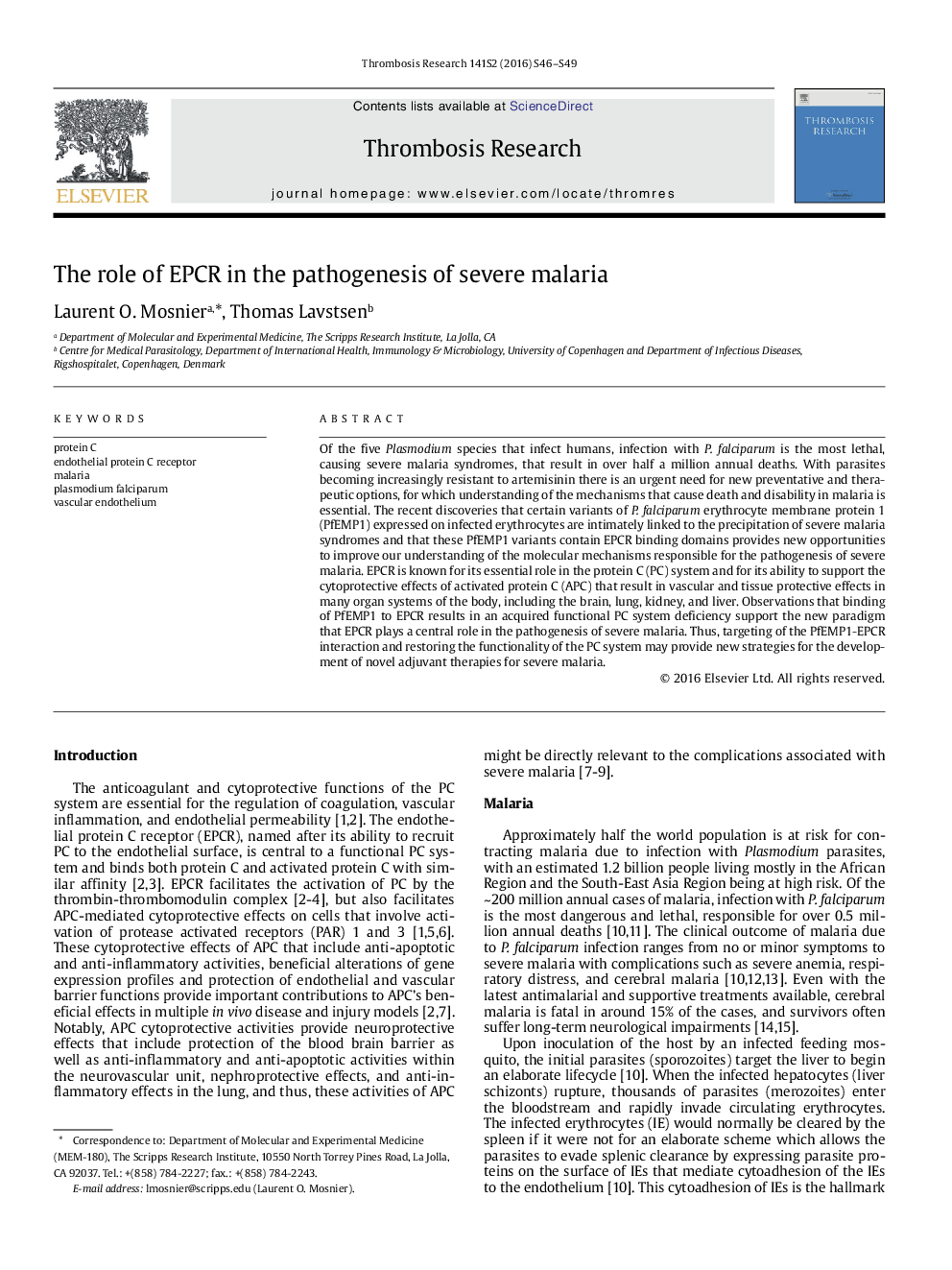| کد مقاله | کد نشریه | سال انتشار | مقاله انگلیسی | نسخه تمام متن |
|---|---|---|---|---|
| 3026804 | 1182922 | 2016 | 4 صفحه PDF | دانلود رایگان |
Of the five Plasmodium species that infect humans, infection with P. falciparum is the most lethal, causing severe malaria syndromes, that result in over half a million annual deaths. With parasites becoming increasingly resistant to artemisinin there is an urgent need for new preventative and therapeutic options, for which understanding of the mechanisms that cause death and disability in malaria is essential. The recent discoveries that certain variants of P. falciparum erythrocyte membrane protein 1 (PfEMP1) expressed on infected erythrocytes are intimately linked to the precipitation of severe malaria syndromes and that these PfEMP1 variants contain EPCR binding domains provides new opportunities to improve our understanding of the molecular mechanisms responsible for the pathogenesis of severe malaria. EPCR is known for its essential role in the protein C (PC) system and for its ability to support the cytoprotective effects of activated protein C (APC) that result in vascular and tissue protective effects in many organ systems of the body, including the brain, lung, kidney, and liver. Observations that binding of PfEMP1 to EPCR results in an acquired functional PC system deficiency support the new paradigm that EPCR plays a central role in the pathogenesis of severe malaria. Thus, targeting of the PfEMP1-EPCR interaction and restoring the functionality of the PC system may provide new strategies for the development of novel adjuvant therapies for severe malaria.
Journal: Thrombosis Research - Volume 141, Supplement 2, May 2016, Pages S46–S49
